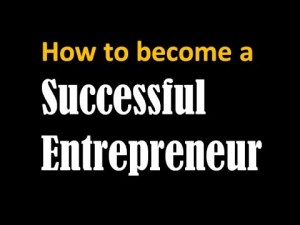(ThyBlackMan.com) Time is one of those magical dimensions of the human experience. At certain instances it seems like there is not enough of it. And at others, it seems like the moment lasts forever. The intellectual and emotional experience in the passage of time is one of those unique aspects about being human that sets us as a species apart from the rest of the animal kingdom. Since were are blessed with that perception we should engage it and contemplate ways in which to make time an ally in our quest for personal and societal growth.
One of the interesting things for me, looking back over the past decade or so, is how quickly our business has grown. And yet, as I look back, it seems that a lot has remained the same. I still get up at the same time almost every morning. I rise well before the sun, usually starting off my day at around 4:30 in the morning with a prayer and call to my folks in South Carolina. I then arrive at the gym just before five a.m., and work out for about an hour before  arriving at my office at precisely 7 o’clock. The end of my day is similarly bounded. It is exceedingly rare that I get in bed any later than 9 p.m.
arriving at my office at precisely 7 o’clock. The end of my day is similarly bounded. It is exceedingly rare that I get in bed any later than 9 p.m.
And so as I look back on my work life, it is apparent that while our business has expanded and we have been able to manage an increasingly complex organization, we aren’t necessarily spending more time doing it. Time has gone from being our enemy in the early stages of running a company, to being our friend today. Why is that?
In some respects, it comes down to how we conceive of ourselves in the marketplace. If you consider yourself an employee, you are looking at time as a finite resource. You expect to arrive at work on time, to leave on time, and be paid on time. You essentially are tying your income to a fixed, linear relationship with time. But entrepreneurs view time much, much differently.
For one thing, the entrepreneur’s perception of time is not linear, it is pivotal. For example, as an entrepreneur I am willing to spend a lot of my time not directly earning income. I spend it building relationships with key allies and future business associates. I give time to worthy causes and public issues that I support. And yet I see these activities as worthy investments of time because of the potentially outsized payoffs in the future. Two hours on the tennis court or having dinner with a key ally could potentially lead to opportunities to make millions in the future.
This is admittedly a difficult concept for many people with the employee mindset to grasp, let alone put into practice. The reason for that is that the entrepreneurial mindset exposes us to uncertainty. There is no guideline or formula or time-table that dictates when an idea or a relationship will bear fruit. That can be frightening to some people. But my entrepreneurial mindset is guided by a deep faith and belief in the laws of creation. I know for a fact that if you sow, you shall reap. I believe that in life there are definite seasons, and that the pattern is inexorable. The spring precedes the summer, which precedes the fall and the winter. In the spring one plants, and in the fall one harvests. In the winter, one relies for sustenance upon the storehouse of goods harvested in the fall that grew from the seeds planted in the spring.
It is somewhat counterintuitive to tell someone with an employee mindset to save some of their seeds and use them to plant a new crop. They are accustomed to having their needs taken care of by their employer. But we are experiencing a new economy in this country where jobs no longer offer either the degree of certainty of the financial rewards they once did. No longer can one rely on working the same job for one’s whole career. People need to become more entrepreneurial these days to survive. But what they don’t often realize is that doing so requires using mental and psychological tools that may be unfamiliar to them.
One of the major tools, to which we have already alluded, is the relationship with time. But another psychological skill is managing customers and clients. In a situation in which one is an employee, one essentially has only one customer or client. And the relationship with that customer is not generally subject to change – for better or for worse. But when you are an entrepreneur and the world is potentially your customer, you have to pay extra close attention to the creation and exchange of value.
Getting paid as an entrepreneur requires an extreme degree of concentration and emotional strength. You are not getting an automatic payment sent to your account on regular intervals. No, an entrepreneur often has to confront his client to make sure the payment is received. Doing this effectively requires both boldness and tact. It is not for the faint of heart. But the trade off is that if you are successful in managing this client-oriented relationship, you are in the driver’s seat in terms of how much you can earn from your time and effort. This is why entrepreneurs are willing to sacrifice the certainty and security of working for someone for the uncertain and potentially infinitely rewarding job of charting their own course.
Written by Armstrong Williams
Official website; http://www.armstrongwilliams.com




















Leave a Reply